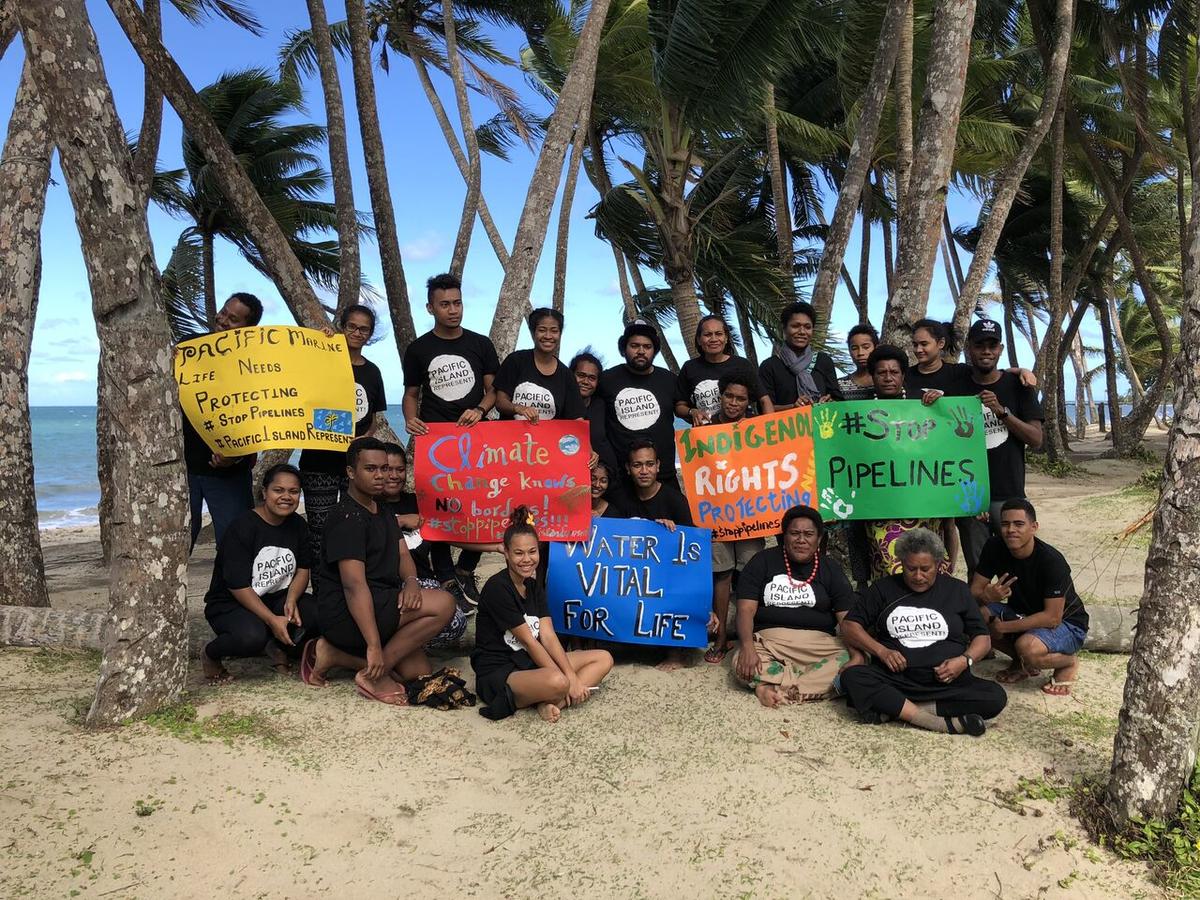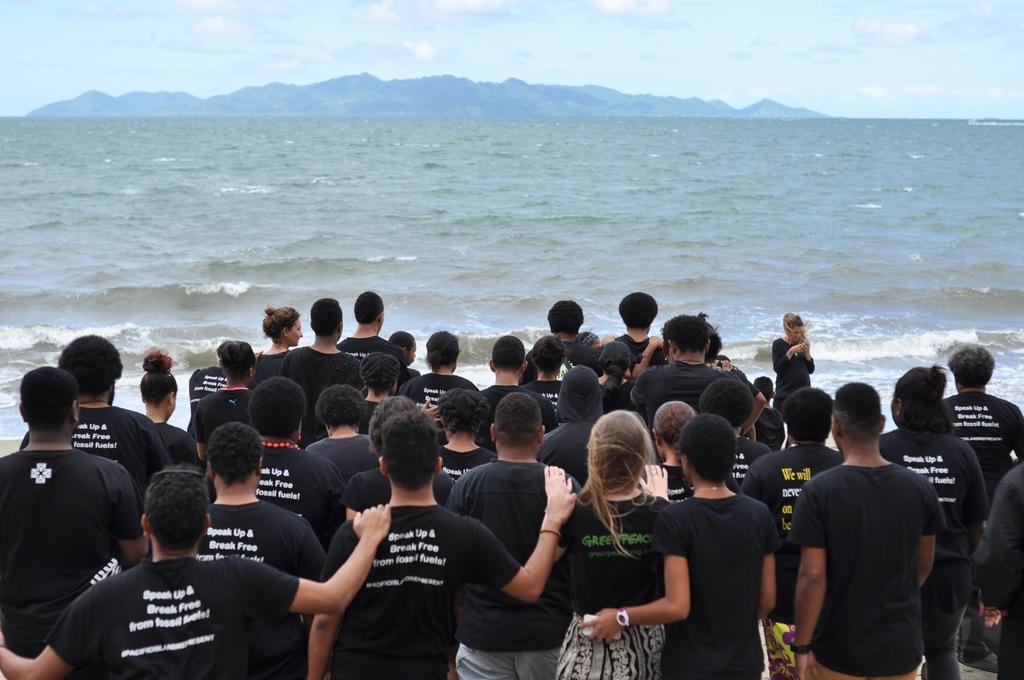Tar sands are one of the dirtiest fossil fuels on the planet, producing more than twice the carbon emissions of an average barrel of oil.

By Kelvin Anthony, Pacific Island Represent activist
On Saturday, 7 July, Pacific Island Represent activists in Fiji staged a demonstration at a beach. I was extremely lucky to be part of the action, which included about 50 other young people.
We were there to unite in solidarity with Indigenous communities in North America, which are leading the fight against tar sands pipeline companies that continue to carelessly put people and the planet at risk.
All of us in our black t-shirts, swarmed across the shore and into the Pacific Ocean to depict an oil spill. Our message was simple: #StopPipelines.
https://www.youtube.com/watch?v=s1_AyFb0H5U
By financing the pipelines that help grow tar sands production the banks that fund them are leading the world down a dangerous path. Tar sands are one of the dirtiest fossil fuels on the planet, producing more than twice the carbon emissions of an average barrel of oil.
Citibank is one of a dozen global banks identified by Greenpeace which continues to have ties to toxic tar sands pipeline projects and to Energy Transfer Partners, the company that built the highly controversial Dakota Access Pipeline.
One such example is the 1,150km Trans Mountain Expansion project that would transport tar sands from Alberta to the coast of British Columbia. While Citi sat out the project loan to TMX when it was owned by Kinder Morgan, they, along with the other 11 dirty dozen banks, still have not made a commitment to not fund tar sands pipeline projects in the future.
The Canadian Government – who bought the project will soon be trying to sell it on to a new owner, and it’s crucial that for banks agree not to fund tar sands pipelines as any new owner seeks funding.

The emissions from the Trans Mountain Expansion project are expected to be equivalent to 2.7 million cars every year, making a huge contribution to climate change that will adversely affect Pacific peoples through rising sea levels and more frequent and severe cyclones.
As Pacific Islanders, we question how big polluters can invest in such projects when the human and environmental consequences far outweigh the profits. This seems absurd to us and we refuse to be silent about it.
As Pacific Island Represent activists we will continue to call out the big polluters who continue to contribute to climate change. We may be geographically isolated but we wanted to tell the dirty dozen banks that their actions affect our future and we are watching.

We refuse to be victims. We will call you out when the planet demands it! The youngest activist to ‘flood the beach’ on that breezy Fijian Saturday morning was my almost three-year-old daughter. That is what this fight means to us.
Our demonstration in Fiji sent a message to Citibank, and others who fund such toxic oil pipeline projects, that the wave of resistance is gaining momentum and it is only getting stronger.
Want to join the movement? Sign the petition to stop tar sands oil pipelines.

